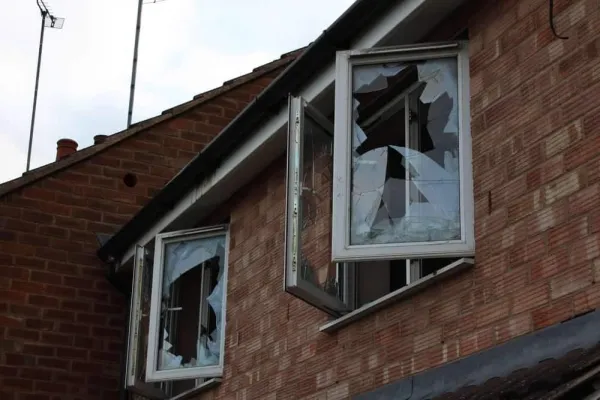The UK housing market seems to be plagued with problems. Ask any first-time buyer; they’ll definitely agree. Even if you take price out of the equation, finding the ‘right’ property seems nearly impossible. Seemingly, there just aren’t enough properties out there to go around. And for many, the ‘right’ property is definitely based on price. With a never-ending cost of living crisis, recession risks, and the ever-increasing prices of property – there are definite problems in the UK housing market.
In this article, we’ll explore the problems affecting the UK housing market, why they exist and what they mean for people buying or selling property.
Let’s get started.
Problem #1: Housing shortage
If you’ve been in the market to purchase a new property over the last few years, you may have noticed that finding a property that is reasonably priced, has everything you need, and hasn’t had any offers is like looking for a needle in a haystack. It’s completely unheard of, and there’s a reason why. The UK housing market has been experiencing a significant shortage of properties for quite a few years now. It’s because of this shortage that there is so much competition whenever a property is put up for sale.
What has caused the housing shortage?
There are a few reasons behind the lack of housing supply. One of the main reasons is that new homes aren’t being built quickly enough and not enough to meet the demand. Since the 1980s, the focus has shifted from building social housing to relying on the private sector, which has not been able to meet the growing demand. So it takes longer for new-build homes to be ready for the market, and by that time, there are plenty of people waiting and ready to purchase them.
Additionally, recent government decisions, such as dropping compulsory targets for councils and strict environmental legislation, are likely to worsen the housing shortage. The additional planning restrictions and legal barriers make the situation worse.
Problem Number 2: Affordability and cost of living
Affordability is another huge issue that plagues the housing market. The limited supply, coupled with high demand, leads to inflated property prices. Consequently, many potential buyers are priced out of purchasing, forcing them to wait longer.
To put this into perspective, the average house price as of September 2023 was £290,000. This is more than eight times the average income in the UK. For buyers relying on a mortgage, a joint mortgage application may not even be enough, especially as both applicants would have to be earning the average income to stand a chance. This significantly reduces the buyer pool of individuals who can actively purchase property at these prices.
Now, affordability is just one part of the problem. Since Covid-19, inflation, cost of living issues, and recession fears have been rampant. Many buyers who have been looking to purchase property may also be currently renting. Rent prices haven’t gone down, and the cost of everything else has also increased. This again reduces the amount of funds available to make a property purchase for the average individual.
Why are house prices so high?
There are reasons why the high house prices in the UK exist. Here’s a breakdown:
Supply and Demand
As mentioned earlier, due to limited supply, there is a high demand for property. This naturally drives prices up. The UK, particularly in areas like London and the South East, has a significant imbalance between the demand for housing and the supply. In fact, any location in the country where there is a high population is currently experiencing increased property prices.
Population Growth
The UK’s population has been steadily growing, and there’s a trend of more people moving to cities where job opportunities are concentrated. This issue is multifaceted. First, as families increase in size, many will look for properties near family to call home. Unfortunately, there are many others also looking to purchase property for the same reason, which again increases the demand.
Additionally, the average income and opportunities for career growth in smaller towns are limited compared to major cities. As a result, many look to move for a higher earning potential, which increases the demand for property.
Investment
Property in the UK, especially in major cities like London, is often seen as a safe and lucrative investment. This attracts both domestic and foreign investors, which increases the competition, further driving up prices.
Will property prices continue to rise?
Now, with all that considered, where do we go from here? We can’t say for certain whether or not property prices will increase or even decrease. However, we can definitely look at some factors which can cause prices to increase further. For example:
Economic Conditions
Property prices are affected by the economic conditions. So, it stands to reason that if external economic conditions continue, then property prices will continue to rise. This includes factors such as economic growth, employment rates, and wage growth. This is because these factors influence people’s ability to buy property. A strong economy typically supports higher house prices.
Government Policies
The government can have a significant impact on the cost of housing. For example, if the government introduces stricter regulations on building new homes, this can limit the supply of new properties, leading to an increase in prices due to limited properties being available. It is unlikely that this will be introduced due to the limited supply of housing already.
Additionally, incentives such as grants, lower interest rates on mortgages, or reduced stamp duty for first-time buyers can significantly increase the demand for housing. These incentives make it more financially feasible for first-time buyers to enter the market, thereby increasing the overall demand for property. When more people are able to buy homes, especially in a market with limited supply, it naturally leads to an increase in property prices.
The current government has released publications on addressing and tackling the housing supply in the UK. If they are successful, there should be more properties available, which will either keep prices the same or reduce them. However, historically, it will take time to address the current housing supply issues and will not cause a change overnight.
Are house prices going down?
For many, the housing market can seem complex as prices can change, so many assume that the housing market will ‘crash’ and suddenly become affordable again. Unfortunately, this isn’t likely.
For reference, consider these facts and figures.
- Currently, in 2023, the average house price stands at around £290,000.
- This is 0.1% lower than the same time last year in 2023.
So technically, it is lower but around the same. Month by month, prices can change. However, to truly identify if housing prices are going down, we need to zoom out.
- In 2013, house prices were around £175,000
- In 2003, house prices were around £133,000
So, based on figures from ten and twenty years ago, house prices have skyrocketed. The biggest drop in the average house price throughout the last 20 years was just after the financial crisis of 2008 when average prices dropped by just over £30,000. Based on this, we can gather that unless there is another huge economic event, prices are unlikely to drop at a significant enough value. Of course, the current house prices are also a result of inflation and a higher cost of living than seen previously.
How are mortgage rates affecting house prices?
Historically, low-interest rates in recent years have made borrowing cheaper, allowing more people to afford mortgages, which in turn increases demand for housing. Conversely, If interest rates rise, borrowing becomes more expensive, which in turn cools down the housing market.
The mortgage rates have been extremely dynamic over the last few years. Most recently, rates stand just above 5%. This is a decrease that will likely make borrowing cheaper and result in a greater demand for property. This, in turn, will increase housing prices.
House prices across the UK
As mentioned earlier, the average house price stands at around £290,000. However, prices vary by location and property type. Here’s a breakdown below:
What are the regional variations in house prices?
- London – Average House Price – £707,000
- East Midlands – Average House Price – £256,000
- North East – Average House Price – £177,000
- North West – Average House Price – £230,000
- South East – Average House Price – £459,000
- South West – Average House Price – £365,000
- West Midlands – Average House Price – £270,000
- Yorkshire – Average House Price £224,000
- Wales – Average House Price – £229,000

How do prices differ for different property types?
Average house prices also differ by the type of property. This again relates to the issue of supply and demand. Specifically, some property types are more in demand than others. For example, most first-time buyers purchase property for their own personal use, which will be for their family. As a result, they would be looking for a house over a flat. Additionally, some property types are viewed as more valuable than others; for example, a detached property is likely to have more space, which results in a higher value. To put this into perspective, here are the average property values by type in London:
- Detached £1,694,207
- Semi £1,103,117
- Terraced £961,006
- Flat £580,246
These price differences by type are pretty much the same across the UK.

What do these housing problems mean for buyers?
The shortage has made it extremely difficult for buyers, particularly first-time buyers, to enter the market. High prices, coupled with stagnant wages, have pushed the dream of buying a home out of reach for many.
What about sellers?
Sellers should benefit from higher prices; however, the volatility of the market adds an element of uncertainty. Additionally, Buy-toLetLandlords are facing their own challenges, with increased regulations and rising interest rates leading some to exit the market, further reducing the supply of rental properties.
However, sellers also face the issue of finding buyers. Due to increased prices, it’s harder to find buyers, especially for properties that aren’t in highly desired areas. However, there are cash house buyers who can ensure a quick and efficient sale of property. Additionally, with Sold.co.uk, if you’re looking to sell, we can help you sell fast. Regardless of the property market, we can help you sell faster than any other estate agent in the UK. And that’s without any fees or legal costs. Submit an online valuation and find out just how fast we can work.
















